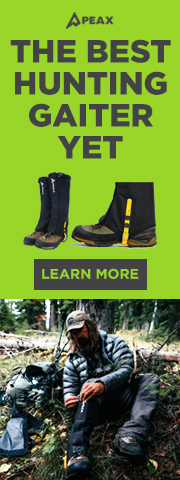elkmtngear
New member
- Aug 9, 2017
- 1,152
\"JohnFitzgerald\" said:Jeff - You\'ve talked about elk being lovers and not fighters. Do those same bulls bugle?
jf
John, taking this Season as an example; I only heard a handful of vocal bulls. Most of the bugling was going on in the very early Mornings, when the bulls were moving their cows to bed. I think as the rut progresses, it is natural for a bull to announce where he\'s going to be hanging out for the day, and the main purpose of this is to let other bulls know that this is going to be his \"temporary territory\".
I observed the same phenomenon when I went to Costa Rica last year with Howler Monkeys; just before daybreak, the mountains start to echo from different points, with each dominant male announcing his \"temporary territory\" for the day.
I hunted one drainage in the evening this Season that had 3 vocal bulls in it. One of them, I recognized from an encounter the day before, he would only chuckle. I knew he only had 3 cows, but he was a solid 290 bull. There was a bugling bull close to his position that sounded like a Satellite or younger bull; he was the most vocal of the three. Then, a little farther down the drainage, was a \"growler\". He would sound off very infrequently, but from the tone was clearly the dominant bull in the area, and certainly the reason \"chuckles\" only had 3 cows. His vocalization sounded more like an angus bull than an elk.
So, 3 different bulls with 3 different styles altogether of vocalization.
When I returned the next morning to hunt those bulls, the ONLY bull I heard was the young Satellite. All Day.
So, do they all bugle? In pressured areas such as the one I hunt, my guess is only when they NEED to. I had close encounters with 2 other bulls this Season, and one is in my freezer. Both those bulls were completely silent, never vocalized, even though I know for sure there were at least 2 vocal bulls on that same ridge.



